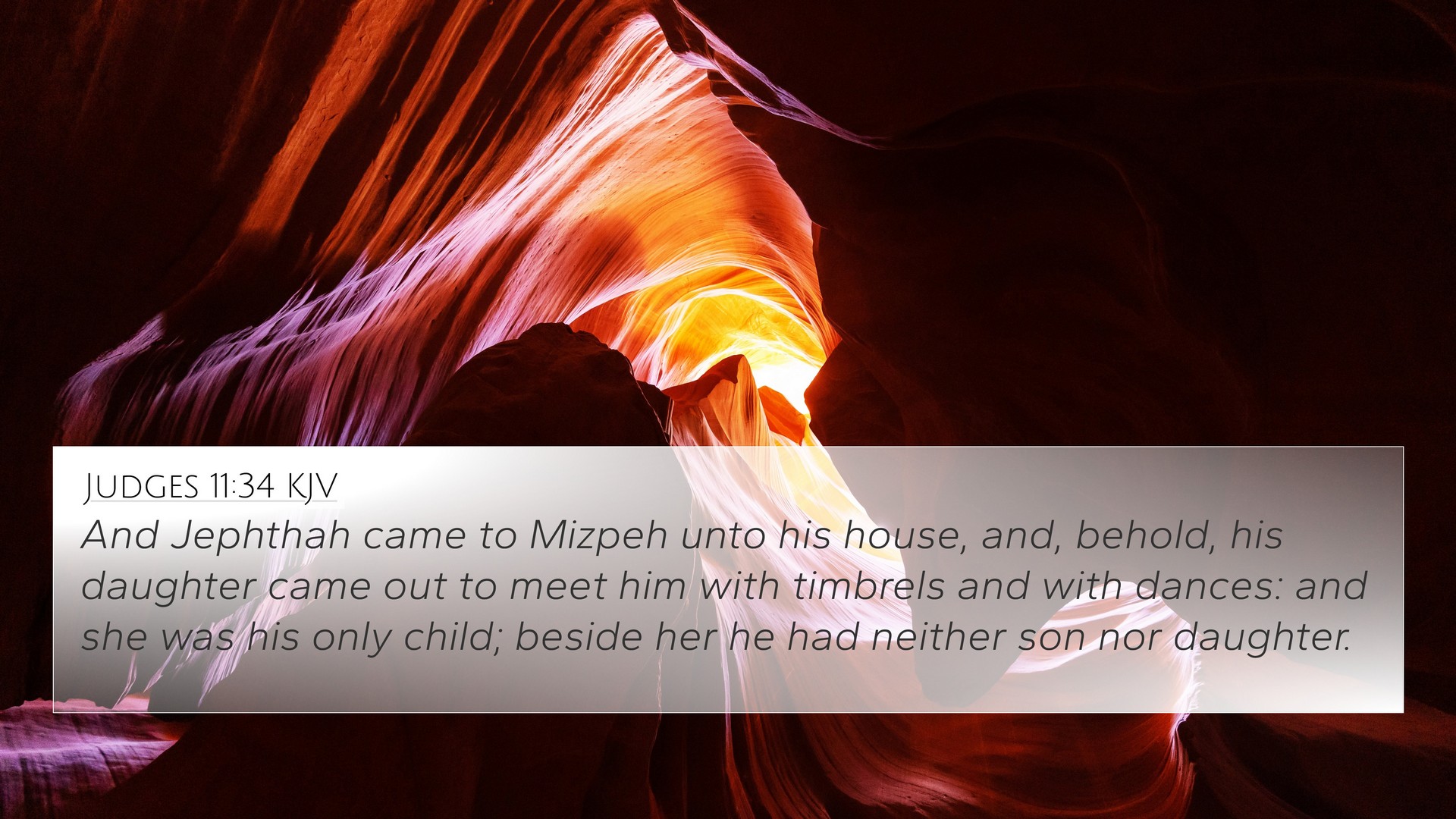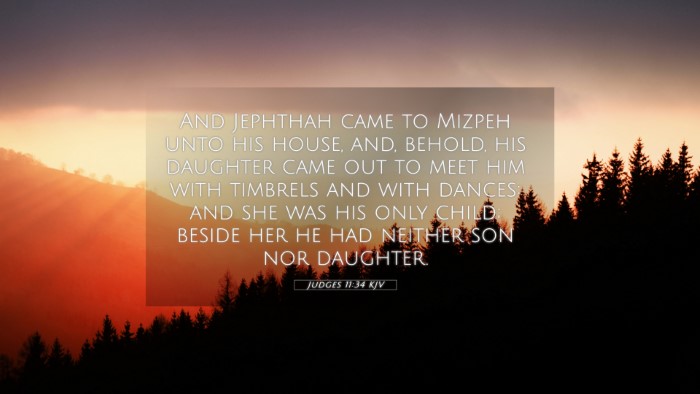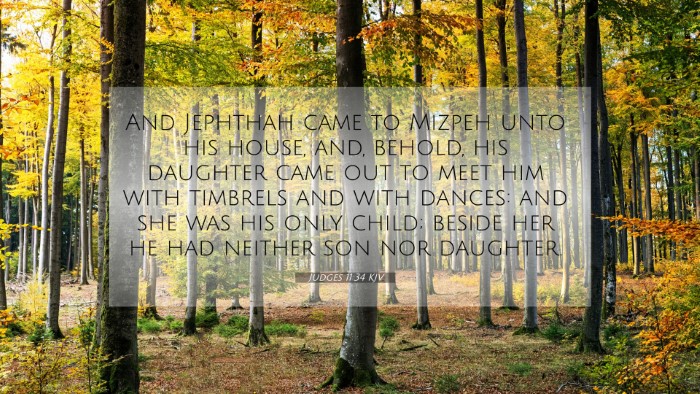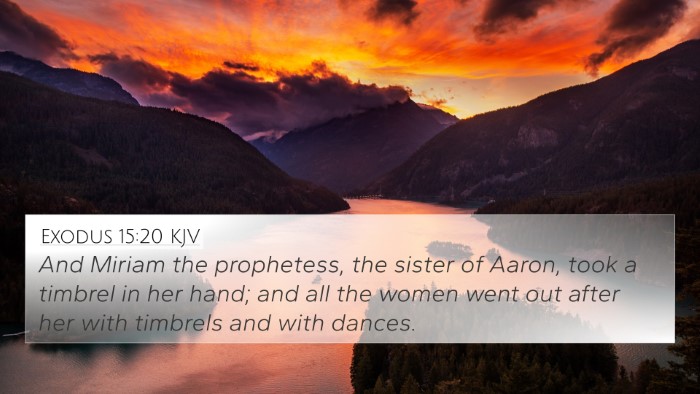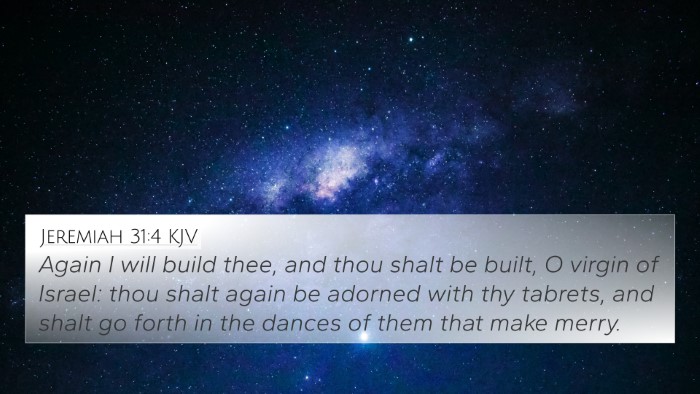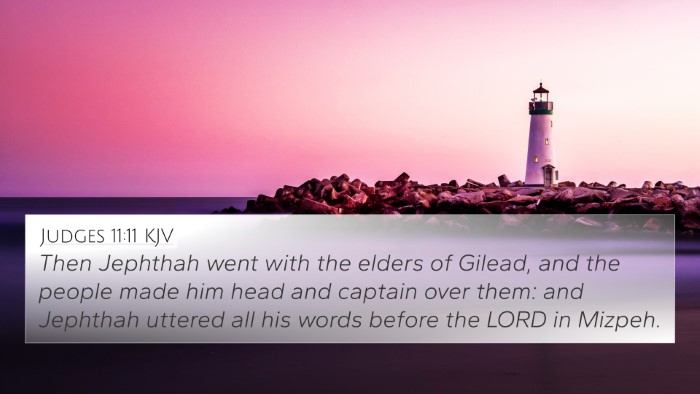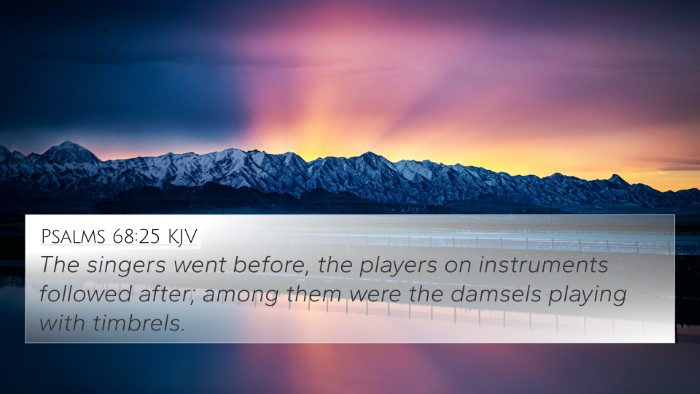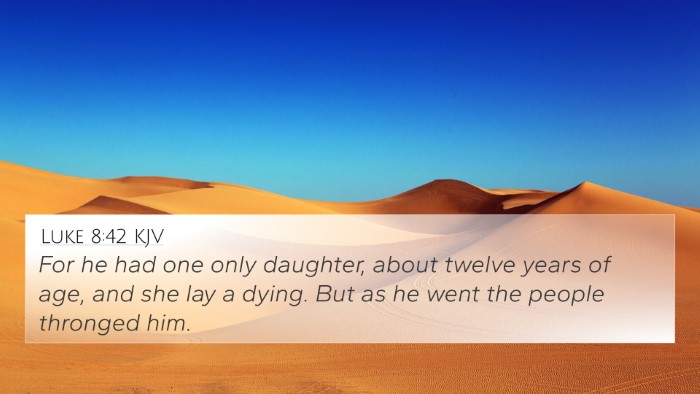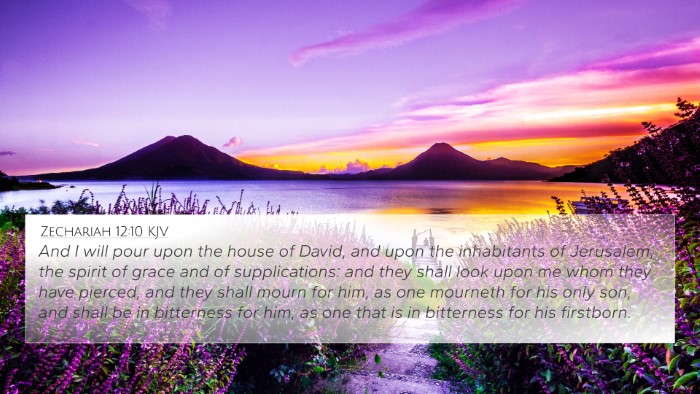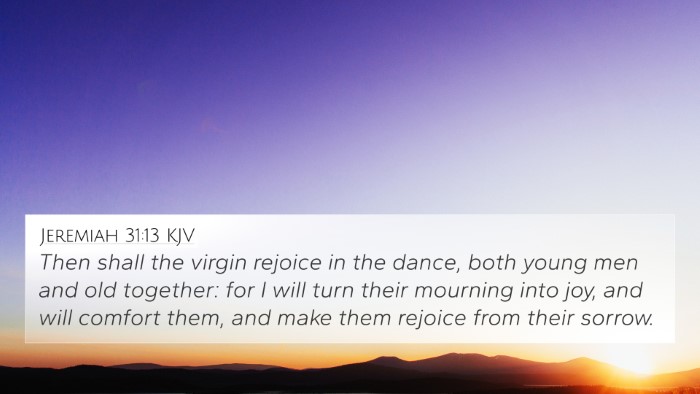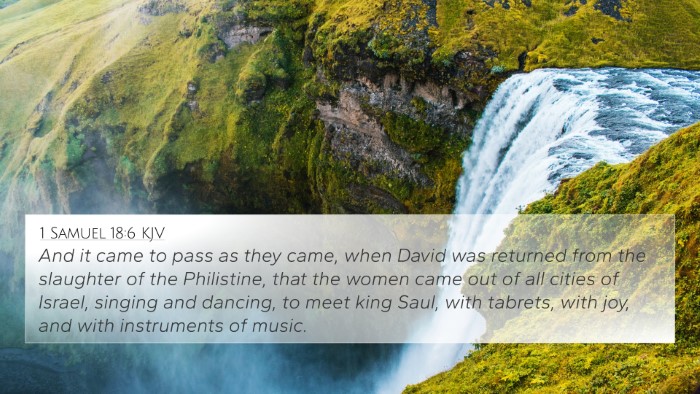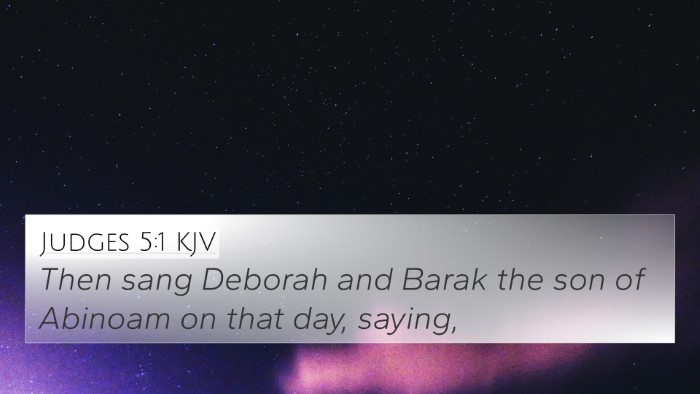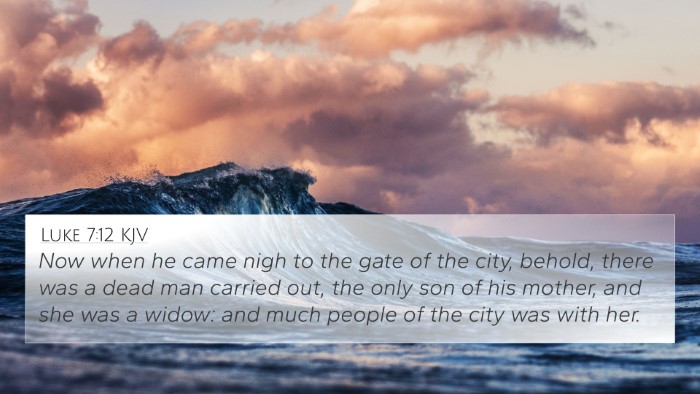Understanding Judges 11:34
Judges 11:34 states, "And Jephthah came to Mizpeh unto his house, and, behold, his daughter came out to meet him with timbrels and with dances: and she was his only child; beside her he had neither son nor daughter."
Summary of the Verse
This passage captures a poignant moment in Jephthah's life upon returning home after battle. His only child, a daughter, joyfully comes out to greet him, highlighting both the joy of reunion and the weight of Jephthah's vow made to God.
Thematic Insights
The moment illustrates themes of loss and sacrifice, fundamental concepts throughout the Bible. Jephthah's story embodies the complexity of human promises and divine expectations, leading to profound consequences.
Commentary Insights
- Matthew Henry: He emphasizes the irony in Jephthah's vow and the tragic implications of the daughter’s joyful greeting in light of the vow's requirements. Jephthah's victory is clouded by the sorrow of impending loss.
- Albert Barnes: Barnes draws attention to the daughter's innocence and her dignity, demonstrating her role as a revered woman of faith. He notes how this event reflects broader covenantal themes in Israel's history.
- Adam Clarke: Clarke comments on the cultural context of the vow and the social implications of Jephthah’s actions. He highlights the importance of understanding Israelite society and the expectations placed upon individuals.
Cross-References
Judges 11:34 connects with various other scripture passages, providing deeper insights and cross-referencing key themes throughout the Bible. Notable references include:
- Genesis 22:1-14 - The binding of Isaac, illustrating the theme of sacrificial vows.
- 1 Samuel 1:11 - Hannah's vow concerning her son Samuel, paralleling the themes of divine promise and personal sacrifice.
- Leviticus 27:2-8 - Discussing vows and dedicatory offerings within the Israelite community.
- Psalm 16:4 - A reflection on the consequences of making vows to God.
- Judges 11:30-31 - The specific vow Jephthah made, leading to the later events of verse 34.
- Matthew 5:33-37 - Jesus’ teachings on keeping oaths and the responsibility of spoken vows.
- Luke 9:62 - The call for commitment in discipleship parallels Jephthah’s struggle with his vow.
Inter-Biblical Dialogue
Judges 11:34 is not just isolated; it embodies a dialogue across the scriptures, promoting a comparative analysis of Biblical themes. The following points outline key connections:
Biblical Themes
- Sacrifice: Reflecting on the nature of personal sacrifice and its implications across various Biblical narratives.
- Women's Role: The significance of the daughter’s actions highlights women’s roles within scriptural contexts.
- Vows and Promises: The consequences of vows made in faith and their results unfold throughout the Biblical text.
Contextual Analysis
By analyzing the context surrounding Judges 11:34, the reader gains insights into how individual actions have cumulative consequences within God’s overarching plan. This leads to understanding scriptural interconnectedness, enriching one’s Bible study.
Tools for Bible Cross-Referencing
To study the connections between Bible verses effectively, various tools can be employed:
- Bible Concordance: A useful tool for locating where specific words and themes occur throughout the Bible.
- Cross-reference Bible Study: Engaging with a study Bible or commentary that includes cross-references can illuminate connections.
- Bible Reference Resources: Utilizing software or online platforms that specialize in Biblical study and cross-referencing.
Conclusion
In conclusion, Judges 11:34 exemplifies significant themes within the scriptures like sacrifice, the role of women, and the seriousness of vows. The connections uncovered through diligent study and careful cross-referencing not only enhance one’s understanding but also inspire deeper contemplation of faith and commitment. Such reflections are crucial for fostering a holistic grasp of the Biblical narrative.
